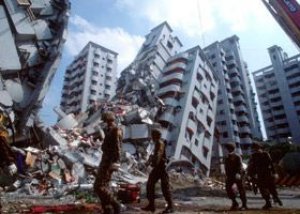
All iLive content is medically reviewed or fact checked to ensure as much factual accuracy as possible.
We have strict sourcing guidelines and only link to reputable media sites, academic research institutions and, whenever possible, medically peer reviewed studies. Note that the numbers in parentheses ([1], [2], etc.) are clickable links to these studies.
If you feel that any of our content is inaccurate, out-of-date, or otherwise questionable, please select it and press Ctrl + Enter.
WHO organizes diarrheal disease prevention for Nepal survivors
Last reviewed: 02.07.2025
 ">
">WHO and its partners have provided additional supplies, including medicines and medical equipment, to help prevent the spread of diarrheal infections in Nepal after the earthquake. According to Dr. Lin Aung, the WHO representative in Nepal, earthquakes of this magnitude damage and contaminate the water supply, which poses a high risk of diarrhea for those who drink it. All those affected by the disaster have been housed in tent cities, which significantly increases the risk of diarrhea due to overcrowding.
Following the strong earthquake, about three million people were left homeless, many residents were forced to leave their surviving homes due to fear of further tremors. Most of the victims live in extremely difficult conditions, for example, in temporary camps, during bad weather, people are forced to shelter from rain and wind only with tarpaulins. Now, at an early stage, the World Health Organization and its partners in the health sector have launched not only activities to detect cases of diarrhea, but also provided residents of tent cities with clean drinking water and sanitation facilities, including portable toilets and septic tanks.
Volunteers also spread information about the importance of improving hygiene in such difficult conditions.
The World Health Organization staff supplies special chlorine-containing tablets for disinfecting drinking water, soap, towels, etc. to the tent cities to improve hygiene. Also, the WHO regional consultant on safe water supply and sanitation noted that all the necessary medicines and medical equipment for treating patients with diarrhea are supplied to the temporary camps. Special kits include antibacterial drugs, intravenous drugs, dry salt mixtures for removing toxins, disinfectants, as well as other materials necessary for the work of medical personnel.
Cases of diarrheal diseases have already been recorded in temporary camps for victims of the devastating earthquake, but all of them were random and intermittent. Today, according to preliminary estimates, the number of cases of such diseases does not exceed the minimum acceptable values, given the living conditions and the heavy rains that have recently fallen in Nepal.
Patrick Duigan, head of the Migration Resettlement Programme, which is responsible for creating appropriate conditions in temporary camps for people displaced from spontaneous zones, noted that none of the temporary camps had recorded dangerous levels of diarrheal diseases and there was currently no evidence that could indicate an increased risk of outbreaks of such diseases.
Dr. Duigan also noted that close work is underway between representatives of the WHO, the International Organization for Migration and the Government of Nepal, during which information is being collected on the number of people housed in tent cities, their living conditions, and ensuring full access to medical services.
